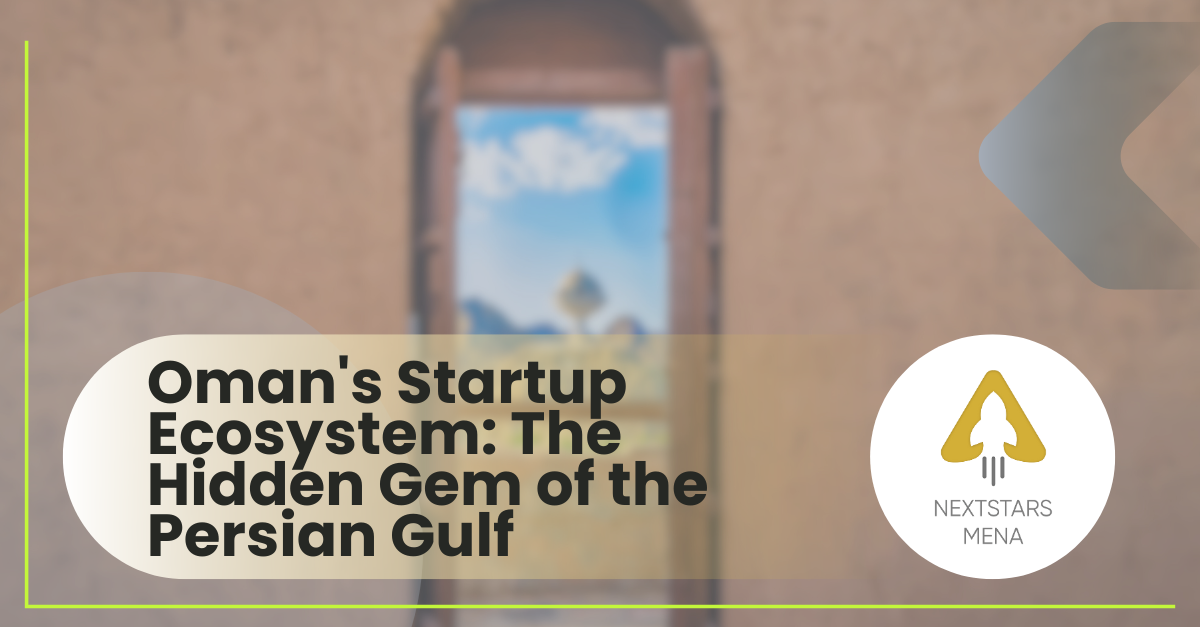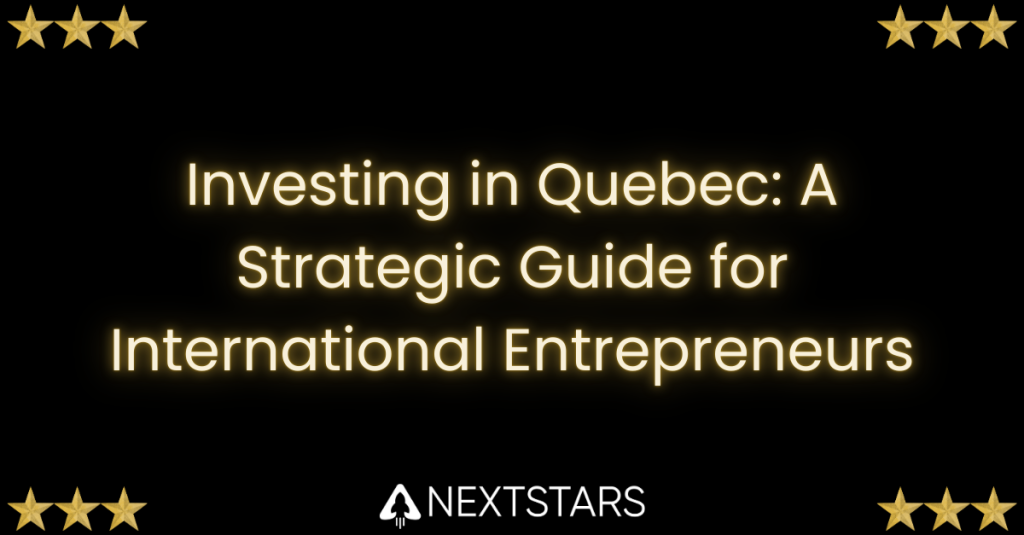Oman’s startup ecosystem is experiencing a quiet revolution—emerging from relative obscurity to become one of the GCC’s most promising frontier markets. While startups raised approximately $45 million in 2024, up from just $15 million in 2022, the real story lies in structural transformation: government initiatives like the $500 million Oman Future Fund, regulatory reforms enabling 100% foreign ownership, and the National Program for Enhancing Economic Diversification (Tanfeedh). With 95% internet penetration, strategic positioning at the entrance to the Persian Gulf, and a young population (60% under 30), Oman offers untapped potential for founders seeking first-mover advantages in an underserved market. The Sultanate’s stable political environment, emerging VC ecosystem (including IDO Investments and Oman Technology Fund), and success stories like Marhaba (acquired by Delivery Hero) and Takaful Oman position it as an increasingly compelling destination for entrepreneurs ready to build in a virgin ecosystem.
A Gateway Positioning: Oman’s Strategic Advantages
Oman occupies a distinctive position in the Middle East startup landscape, offering unique advantages often overshadowed by its flashier neighbors.
Geographic and Strategic Access
With a population of 4.5+ million and 95% internet penetration, Oman provides an underserved market ripe for digital transformation. The country’s strategic location offers overlooked advantages:
Indian Ocean gateway: Controls the Strait of Hormuz, through which 20% of global oil passes
Logistics powerhouse: Developing as alternative to congested Dubai/Jebel Ali ports
African connections: Historical ties to East Africa (Zanzibar, Kenya, Tanzania)
South Asian proximity: Deep cultural/trade links with India and Pakistan
Untapped Market Dynamics
Oman’s market characteristics create unique opportunities:
- Virgin ecosystem: Less competition than saturated UAE/Saudi markets
- Government digitization: Aggressive public sector digital transformation creating opportunities
- Young demographics: 60% of population under 30, tech-savvy and underserved
- Tourism potential: 3.5 million visitors annually, growing 10% year-over-year
Cost and Operational Advantages
Compared to regional peers, Oman offers compelling economics:
- Operating costs 40-60% lower than Dubai
- Talent costs 30-50% lower than Qatar/UAE
- Real estate 50-70% cheaper than regional hubs
- Government incentives reducing startup costs further
Political and Social Stability
Oman maintains unique regional neutrality:
- Consistent foreign policy avoiding regional conflicts
- Stable succession following Sultan Haitham’s ascension (2020)
- Progressive social policies while maintaining cultural authenticity
- Bridge between Iran and GCC, India and Pakistan
This combination of strategic location, market opportunity, and cost advantages positions Oman as an ideal base for startups seeking to build without the noise and competition of established hubs.
Government Support and Policy Infrastructure
Oman’s government has pivoted decisively toward economic diversification, with entrepreneurship as a central pillar of Vision 2040.
Oman Vision 2040
The comprehensive Oman Vision 2040 represents fundamental economic restructuring with clear targets:
- Increase private sector contribution to 90% of GDP (from current 60%)
- Create 2 million new jobs by 2040
- Achieve top 20 global ranking in government digital services
- Build innovation-driven economy reducing oil dependence
Oman Future Fund (OFF)
The $500 million Oman Future Fund, launched in 2024, addresses critical funding gaps:
- $200 million allocated for venture capital investments
- $150 million for technology transfer initiatives
- $100 million for startup ecosystem infrastructure
- $50 million for international partnership programs
- Focus on Series A and beyond to enable scaling
National Program for Enhancing Economic Diversification (Tanfeedh)
Tanfeedh has delivered tangible results since 2016:
- 121 initiatives launched across sectors
- $13 billion in investments committed
- 35,000+ jobs created in diversification sectors
- Specific focus on logistics, tourism, manufacturing, and technology
Startup-Friendly Reforms
Revolutionary policy changes include:
- 100% foreign ownership allowed (unprecedented reform in 2020)
- One-stop-shop licensing through Invest in Oman
- 10-year residency for investors and skilled professionals
- Bankruptcy law protecting entrepreneurs (2020)
- Labor law flexibility for startups
Sector-Specific Initiatives
Targeted programs driving innovation:
- Oman ICT Group: $100 million fund for tech investments
- Petroleum Development Oman (PDO): In-Country Value program mandating local innovation
- Public Authority for SME Development (Riyada): Comprehensive startup support
- Innovation Park Muscat: 500,000 sq.m. tech hub under development
- Knowledge Oasis Muscat (KOM): Existing tech park with 3,000+ professionals
The Funding Landscape: Early But Accelerating
Emerging Funding Momentum
Oman’s startup funding landscape, while nascent, shows promising acceleration and structural improvements.
Overall trajectory:
- $45 million raised in 2024 (estimated)
- 200% growth from $15 million in 2022
- 25 active startups receiving funding
- International investor interest emerging
The Opportunity in Immaturity
While funding volumes lag regional peers, this creates advantages:
- Less competition for available capital
- Lower valuations offering better entry points
- Government funding more accessible than mature markets
- First-mover advantages in multiple sectors
Sector Breakdown
Logistics and Supply Chain leading:
- 35% of funding aligned with Oman’s port infrastructure
- Companies like Bayan and Fresh Express gaining traction
- B2B focus addressing real economy needs
- Export potential to broader region
FinTech emerging strongly:
- 25% of funding driven by financial inclusion mandate
- Thawani Pay, Malia, and others building infrastructure
- Central Bank of Oman (CBO) supportive regulatory framework
- Islamic finance innovation opportunities
Tourism and Hospitality Tech:
- 20% of funding leveraging tourism growth
- Adventure tourism platforms emerging
- Heritage and cultural experience marketplaces
- Integration with government tourism initiatives
Other nascent sectors:
- AgriTech: Addressing food security priorities
- EdTech: Serving young population
- HealthTech: Digitizing healthcare delivery
- CleanTech: Renewable energy and water solutions
Local Funding Sources
Active local investors:
- IDO Investments: $50 million fund, most active local VC
- Oman Technology Fund: $200 million government-backed fund
- Riyada Fund: Seed funding up to $130,000
- Al Waha Fund: $20 million for early-stage companies
- Bank Muscat Innovation Hub: Corporate venture initiatives
Family offices entering:
- Traditional merchant families diversifying portfolios
- Next-generation leadership driving tech investments
- Patient capital with 10+ year horizons
International Interest Building
Regional investors discovering Oman:
- Faith Capital exploring Oman opportunities
- Wamda Capital made first Oman investment
- Saudi VCs looking beyond domestic market
- Indian investors leveraging diaspora connections
Exit Challenges and Opportunities
Limited but improving exit environment:
- Marhaba: Acquired by Delivery Hero (validation moment)
- Takaful Oman: Regional insurance platform expansion
- IPO pathway developing through Muscat Securities Market reforms
- Regional M&A increasing as GCC integration deepens
Success Stories: Omani Startups Breaking Through
Thawani Pay: FinTech Pioneer
Founded in 2019, Thawani Pay has become Oman’s flagship fintech success, building critical payment infrastructure for the digital economy.
The platform:
- Payment gateway serving 2,000+ merchants
- Processing $100+ million annually
- 60% market share in e-commerce payments
- Expansion to B2B payments and government services
Growth metrics:
- 300% year-over-year transaction growth
- Raised $5 million in Series A (2024)
- EBITDA positive within 3 years
- Planning GCC expansion in 2025
Strategic importance:
- Enabling e-commerce ecosystem
- Financial inclusion for SMEs
- Government digital transformation partner
- Building rails for digital economy
Marhaba: The Exit That Changed Everything
Marhaba (formerly Akeed) demonstrated Oman’s potential through its journey to acquisition.
The story:
- Founded by Omani entrepreneurs in 2018
- Food delivery platform serving Muscat, Sohar
- Acquired by Delivery Hero in 2022
- Validated Oman as viable startup market
Impact on ecosystem:
- First major tech exit from Oman
- Inspired new generation of founders
- Attracted international investor attention
- Proved execution quality of Omani talent
Bayan: Logistics Innovation
Bayan represents Oman’s logistics advantages, building supply chain solutions for regional trade.
The solution:
- Digital freight forwarding platform
- Leveraging Oman’s port infrastructure
- $10 million GMV in first 18 months
- Connecting Oman, UAE, Saudi trade corridors
Traction:
- 200+ enterprise customers
- Backed by IDO Investments
- Partnership with Oman Ports
- Expansion to East Africa planned
Other Rising Stars
Fresh Express:
- Grocery delivery platform
- 50,000+ users in Muscat
- 30-minute delivery promise
- Expanding to Salalah, Sohar
Rihal:
- Travel and tourism marketplace
- Adventure tourism focus
- Partnered with Ministry of Tourism
- International tourist targeting
Edu Plus:
- EdTech platform serving 20,000+ students
- Adaptive learning technology
- Arabic and English content
- Expanding to Saudi Arabia
Challenges: Building From Scratch
Ecosystem Immaturity
Fundamental gaps remain:
- Limited startup density: ~100 active startups total
- Weak network effects: Insufficient peer learning
- Few mentors: Lack of experienced entrepreneurs
- Limited success stories: Few role models for founders
Building blocks needed:
- Critical mass of founders
- Experienced mentors and advisors
- Serial entrepreneurs
- Ecosystem connectors
Talent Pipeline Constraints
Human capital challenges:
- Limited technical talent: Few experienced developers
- Brain drain: Top talent leaving for Dubai/abroad
- Skill gaps: Lack of product managers, growth marketers
- Wage competition: Oil/gas sector paying premiums
Emerging solutions:
- Government scholarship programs
- Coding bootcamps launching
- Remote work acceptance
- Diaspora return programs
Market Size Reality
Small addressable market:
- 4.5 million population limits B2C potential
- Low purchasing power versus Qatar/UAE
- Geographic dispersion: Population spread across vast territory
- Export imperative: Must think regionally from day one
Strategic approaches:
- B2B/B2G focus with larger contracts
- Regional expansion planning
- Niche global markets
- Government as anchor customer
Cultural Conservatism
Traditional mindsets:
- Risk aversion: Preference for government/corporate jobs
- Family pressure: Stability over entrepreneurship
- Limited failure acceptance: Social stigma around business failure
- Gender gaps: Women underrepresented in tech
Positive shifts:
- Youth embracing entrepreneurship
- Government celebrating entrepreneurs
- Female entrepreneurship growing
- University programs changing mindsets
Capital Gaps
Funding desert between stages:
- Seed funding: Available through government programs
- Series A desert: $1-5 million rounds nearly impossible
- Growth capital: Non-existent locally
- Limited investor sophistication: Few understand venture model
Solutions developing:
- Oman Future Fund addressing gaps
- Regional investors entering
- Corporate venture emerging
- Government co-investment programs
The Support Ecosystem: Foundations Building
Incubators and Accelerators
Riyada (Public Authority for SME Development):
- National SME development mandate
- 1,000+ SMEs supported annually
- Seed funding up to $130,000
- Training programs reaching 5,000+ entrepreneurs
- Incubation centers in 5 cities
National Business Center (NBC):
- Premier incubator at Knowledge Oasis Muscat
- 50+ startups incubated
- Focus on ICT and digital startups
- Mentorship from regional experts
- Free office space for 2 years
Oman Technology Fund Accelerator:
- $200,000 investment per startup
- 6-month program
- Sector agnostic approach
- Access to regional mentor network
- 2 cohorts per year
Zubair SEC:
- Social enterprise focus
- Supporting impact-driven startups
- 100+ social entrepreneurs trained
- Partnership with British Council
- Focus on sustainability and inclusion
Academic Incubators:
- Sultan Qaboos University Innovation Hub
- German University of Technology (GUtech) Center
- Caledonian College entrepreneurship programs
- Combined 200+ student startups annually
University Ecosystem
Sultan Qaboos University (SQU):
- Innovation and Entrepreneurship Center
- 1,500+ students in entrepreneurship courses
- Annual startup competition with $100,000 prizes
- Research commercialization initiatives
- Partnership with international universities
Higher College of Technology:
- Ibtikar student incubator
- Focus on technical ventures
- Industry partnerships for practical training
- 500+ students in startup programs
Private Universities Contributing:
- Sohar University tech entrepreneurship focus
- Dhofar University tourism innovation
- Muscat University business incubation
- Combined 3,000+ students exposed to entrepreneurship
Support Organizations
Oman Chamber of Commerce and Industry (OCCI):
- SME Committee driving policy advocacy
- Networking events connecting founders
- International partnerships facilitating trade
- Export support programs
Startup Oman:
- Community-driven initiative
- 2,000+ members in network
- Monthly meetups and workshops
- Demo days connecting founders to investors
- Partnership with Google for Startups
Women’s Business Council:
- Supporting female entrepreneurship
- 500+ women entrepreneurs in network
- Mentorship programs
- Access to dedicated funding
- 30% of new startups founded by women
International Programs
UK-Oman Digital Hub:
- British Council partnership
- Tech skills development
- 50+ startups supported
- UK market access support
- Youth entrepreneurship focus
- 10,000+ students reached
- Company creation programs
- Regional competition opportunities
Looking Ahead: The Frontier Opportunity
Inflection Point Approaching
Oman’s startup ecosystem stands at a crucial juncture in 2025:
Momentum building:
- Funding tripling in 2 years ($15M to $45M)
- Government commitment unprecedented (Oman Future Fund)
- Regulatory barriers falling (100% foreign ownership)
- First exits proving viability (Marhaba)
- Youth demographics favorable (60% under 30)
Structural challenges:
- Ecosystem density still below critical mass
- Talent pipeline needs development
- Investor sophistication lacking
- Market size constraints
- Cultural shifts required
What Success Looks Like by 2030
Quantitative targets:
- $200M+ annual startup funding (4x current)
- 500+ active startups (from 100 today)
- 5+ Series A rounds annually
- 10+ exits cumulative
- 20,000 jobs in startup ecosystem
- 1 unicorn or near-unicorn
Qualitative markers:
- Regional investors actively seeking Oman deals
- Omani startups expanding successfully to GCC
- Diaspora talent returning to build companies
- Corporate venture active from major Omani companies
- University spinoffs commercializing research
Strategic Imperatives
For government:
- Deploy capital aggressively: Oman Future Fund must move quickly
- Talent development: 10,000 developer initiative needed
- Ecosystem density: Support programs to reach 500+ startups
- Regional positioning: Market Oman’s unique advantages
- Success amplification: Celebrate wins loudly
For investors:
- First-mover advantage: Enter before market heats up
- Patient capital: Accept longer development timeline
- Hands-on support: Provide expertise beyond capital
- Regional networks: Connect Omani startups regionally
For corporates:
- Innovation mandates: PDO model across sectors
- Startup procurement: Become customers not just mentors
- Corporate venture: Deploy balance sheet capital
- Talent sharing: Secondments and partnerships
For founders:
- Solve real problems: Focus on logistics, finance, government
- Think regionally: Build for GCC from inception
- Leverage advantages: Use Oman’s strategic position
- Government partnership: Align with national priorities
The Unique Opportunity
Oman presents a rare frontier market opportunity in the GCC:
First-mover advantages:
- Less competition than saturated markets
- Government support more accessible
- Lower costs enabling longer runway
- Virgin sectors awaiting disruption
Strategic positioning:
- Gateway to Iran (when sanctions lift)
- Bridge to East Africa
- Alternative logistics hub to UAE
- Neutral ground for regional business
Sector opportunities:
- Logistics: Leveraging port infrastructure
- Tourism: Untapped adventure/heritage potential
- FinTech: Financial inclusion imperative
- GovTech: Aggressive digitization agenda
- AgriTech: Food security priority
The Path Forward
Oman offers something increasingly rare: a true frontier market with government backing, improving infrastructure, and massive headroom for growth. The ecosystem requires:
Pioneer mindset: Builders willing to create the ecosystem while building their companies
Patient capital: Investors understanding 7-10 year development cycles
Government execution: Rapid deployment of committed resources
Talent development: Aggressive programs to build human capital
Regional integration: Connections to mature ecosystems
For the right founders and investors, Oman represents compelling opportunity:
- Lower competition than Dubai/Riyadh
- Lower costs enabling capital efficiency
- Government support more accessible than larger markets
- Virgin territory across multiple sectors
- Strategic advantages others overlook
The startups that succeed in Oman over the next 5 years won’t just build companies—they’ll build an entire ecosystem. This frontier-building opportunity offers outsized rewards for those willing to embrace the challenge.
The key insight: Oman isn’t trying to compete with Dubai or Riyadh on their terms. It’s building something different—a strategic, cost-effective base for companies targeting the broader region. For founders who understand this positioning, Oman offers unique advantages unavailable elsewhere in the GCC.
Oman’s combination of strategic location, government commitment, cost advantages, and frontier opportunity makes it one of the most intriguing undiscovered startup ecosystems in 2025 and beyond.
Read our article about Morocco here.





